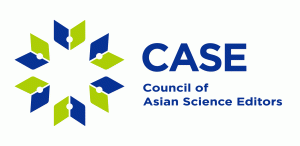COOKIE POLICY
The Korean Society of Mycology and its subsidiaries and affiliates (hereinafter, the “Organizer“, “We“) uses certain monitoring and tracking technologies, such as cookies, beacons, pixels, tags, and scripts (collectively, “Cookies”). These technologies are used in order to provide, maintain, and improve our website (the “Services”), to optimize our offerings and marketing activities, and to provide our visitors and users (“you”, or “your”) with a better experience (for example, in order to track your preferences, to better secure our Services, to identify technical issues, and to monitor and improve the overall performance of our Services).
This page contains information on what Cookies are, the Cookies used on our Services, how to reject Cookies, and some useful links for further reading on the subject. If you are unable to find the information you were looking for, or you have any further questions about the use of Cookies on our Services, please email info.amc2023@gmail.com.
For more information about our general privacy practices, please visit our Privacy Policy.
1. What are Cookies?
Cookies are small text files that are stored through the browser on your computer or mobile device (for example, Google Chrome or Safari) when you visit a website. They allow the site to store information like login information or language preference. You can think of Cookies as providing a so-called memory for the website, so that it can recognize you when you come back and respond appropriately. You are not obligated to accept all Cookies in order to visit our website, however, enabling Cookies may allow for a more personalized browsing experience and is required for most of our Services to work.
2. How do we use Cookies?
The Organizer uses several different types of Cookies on our website:
- Essential Cookies: these Cookies are necessary for the Services to function properly and cannot be disabled. They are usually only set, in response to actions made by you, enabling functions like navigation, or setting preferences. These Cookies do not store information about you that will be used for other purposes.
- Preferences & Functional Cookies: these Cookies enable the Services to provide enhanced functionality and personalization. They may be set by us (first-party Cookies) or by third-party providers who work with us (third-party Cookies).
- Performance & Analytics Cookies: these Cookies are for internal use only. They help us to secure and maintain our Services, and to remember your preferences for tools found on the Services. They are also used for gathering analytics data on how you interact with our Services and the improvement performance of the site accordingly. If you do not allow these Cookies, we will not know when you have visited our site.
- Targeting & Advertising Cookies: these Cookies make advertisements more relevant to you. Our advertising partners may use it to show you relevant ads on different websites by uniquely identifying your browser and internet device.
3. How long does Cookies last?
The length of time a Cookie stays on your device varies according to its purpose.
A Cookie that remains on your device after your session is concluded (until it expires or deleted) is called a “Persistent Cookie”. Persistent Cookies are used for different purposes, such as tracking your preferences, login information, your interaction with our Services and the effectiveness of our targeting Cookies.
A Cookie that is automatically deleted once your session is concluded is called a “Session Cookie”. Session Cookies are used for the duration of your stay on our site and are automatically deleted when you exit the browser.
4. Which Cookies do we use?
Cookie Purpose Description
Amc2023 Essential
YouTube Preferences & Functional Video implementation
Google Analytics Performance & Analytics Insights into our marketing effort
Facebook Targeting & Advertising Marketing attribution
Google Targeting & Advertising Marketing attribution
Twitter Targeting & Advertising Marketing attribution
5. How can you reject or remove Cookies?
You have a choice regarding the use of Cookies as described in this policy. Please note that rejecting or removing certain Cookies may result in inadequate or partial Services.
You can adjust your web browser settings, usually located in the ‘Options’ or ‘Preferences’ menu of your browser.
If you are primarily concerned about third-party Cookies generated by advertisers, and you live in the US, Canada, Europe or the UK, you can also opt out from the collection of your data by our advertising partners who participate in the Digital Advertising Alliance.
Opt-out by visiting:
- US: aboutads.info/choices
- Canada: youradchoices.ca/choices
- EU: https://www.youronlinechoices.eu/
- UK: https://www.youronlinechoices.com/uk/
In addition, on your mobile device (e.g., iPhone, iPad or Android), you can change your device settings to control whether you see online interest-based ads.
Please note that when you get a new computer, install a new browser, erase or otherwise alter your browser’s cookie file (including upgrading certain browsers), you may also clear the opt-out Cookies installed once you opt-out, so an additional opt-out will be necessary to prevent additional tracking.
6. “Do Not Track” signals
Some web browsers may transmit “Do Not Track” signals to websites with which the browser communicates, telling the website not to follow its online movements. Because of differences in how web browsers interpret this feature and send those signals, and lack of standardization, it is not always clear whether visitors and users intend for these signals to be transmitted or whether they are even aware of them. Therefore, as many other reputable websites, we currently do not respond to such “Do Not Track” signals.
Effective date: March 15, 2023
